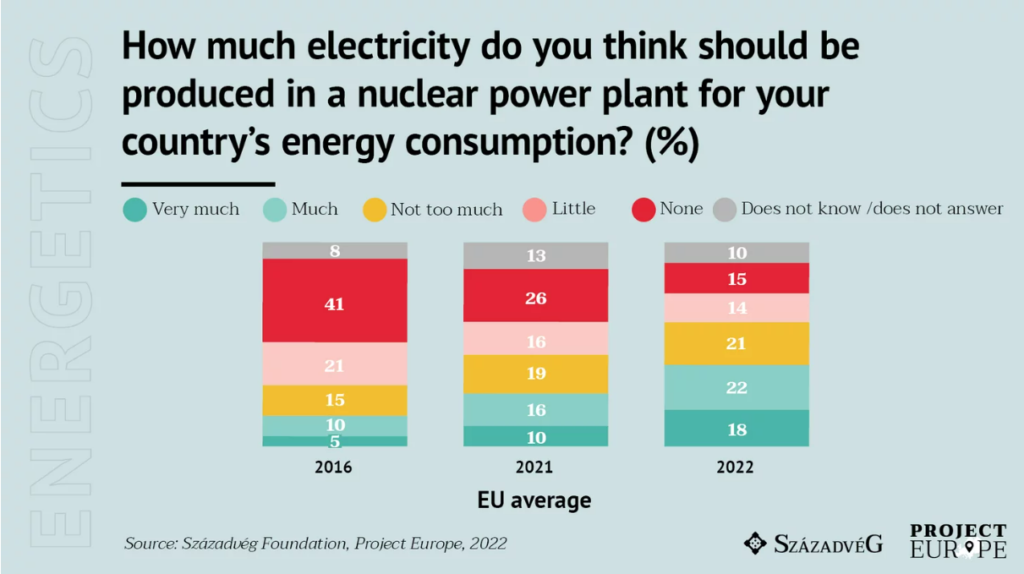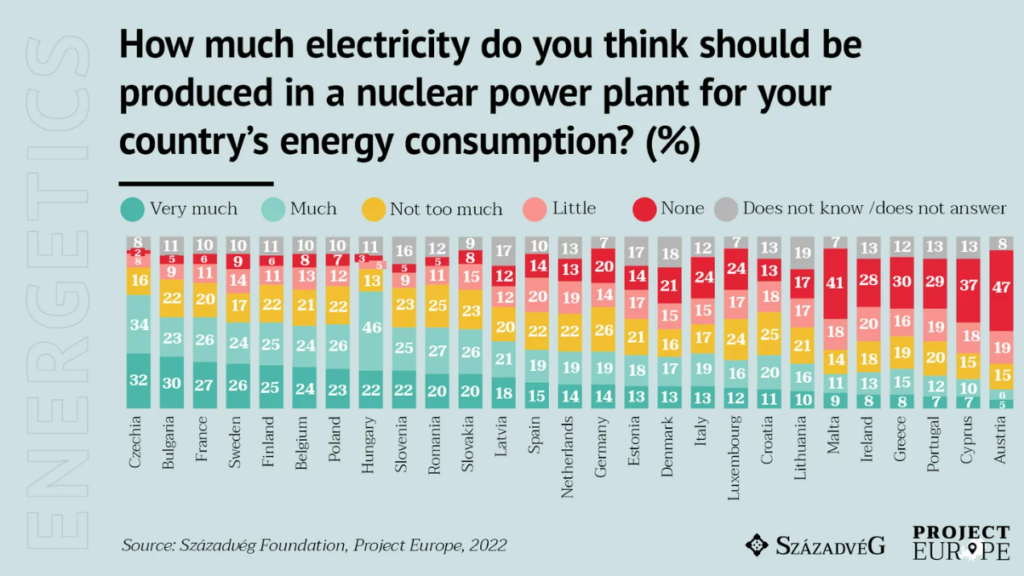Support For Nuclear Energy Is Increasing In All EU Member States
A recent survey published by the Hungarian Századvég Foundation shows a growing positive perception of nuclear energy in all EU Member States.
According to the results of the Project Europe Research conducted by Századvég, in the last year, the share of EU citizens opposing the use of nuclear energy has fallen from 26% (Autumn 2021) to 15% (Autumn 2022).
Among the main factors, the Foundation underlines the current energy crisis, which accelerated a trend already ongoing since 2015.
The percentage of those in favour of nuclear power – who say the technology should produce very much or much energy – has increased from 26% to 40%.
Moderate opinions (not too much or little) remain stable at 35%.

Századvég Foundation – Project Europe 2022
The change is quite remarkable. Indeed, it’s interesting to see how the proportions of those supporting and opposing nuclear energy have totally reversed.
Looking at each EU country, there are still significant differences in support for nuclear energy in the EU Member States, but the differences are steadily narrowing with the drastic transformation in the Member States that have rejected nuclear power.
Similarly to the 2021 results, the Czech Republic (32%), Bulgaria (30%), and France (27%) lead the ranking of respondents with very much option, but the highest number of supportive answers (very much and much) has been reported in Hungary (68%).

Századvég Foundation – Project Europe 2022
Some of the member states with renowned negative perceptions of nuclear energy continue to maintain their relative position in country rankings, however, the degree of rejection in these countries has also significantly decreased over the last twelve months.
The most instructive example is Germany, where the proportion of those rejecting nuclear technology has dropped from 65% to 20% in six years so today only a fifth of the population represents the previously majority position.
Read the full Századvég Foundation report here.
The Project Europe Research is a public opinion poll survey conducted by the Századvég Foundation since the first half of 2016.
It covers all 28 European Union Member States, with the aim to analyse the opinions of EU citizens regarding the issues that most affect the future of the EU.




